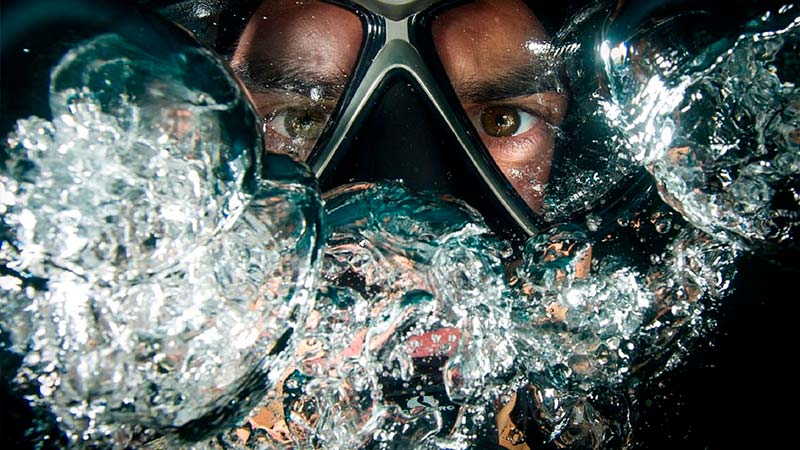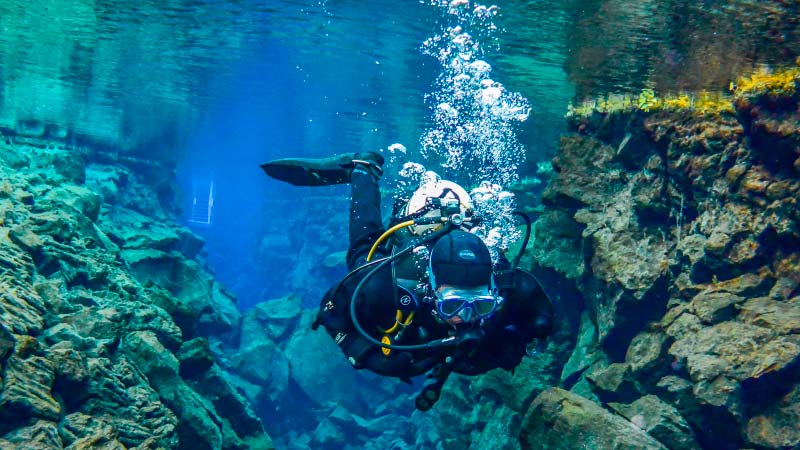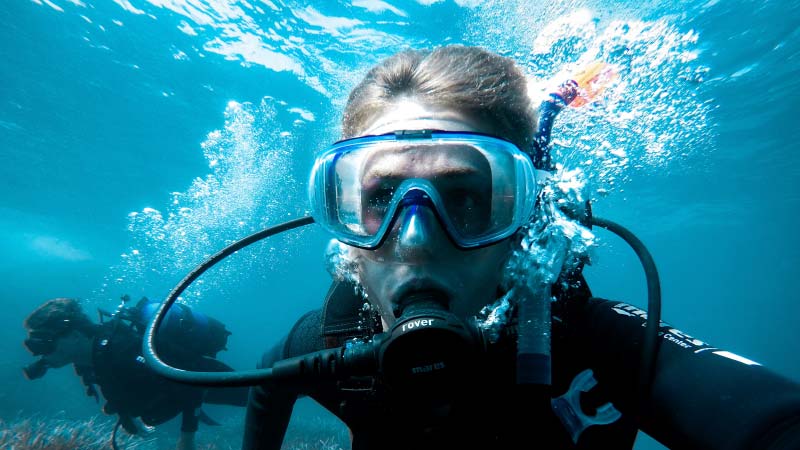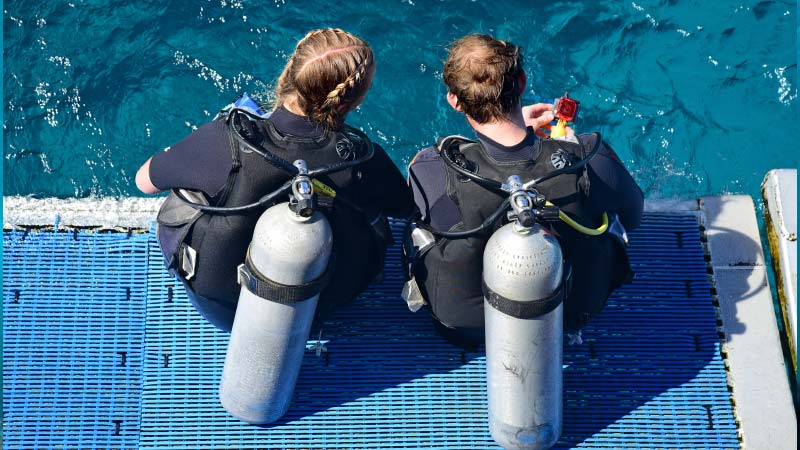1. Why Do So Many Divers Smoke?
Multiple reasons may be behind why so many scuba divers mix smoking and diving.
Most of the time they are on vacation and have ample free time on their hands. Additionally, in this context, everybody is indulging in pleasurable activities and many people perceive smoking as a form of enjoyment and choose not to give it up in such a leisurely setting.
It is possible, they are in an environment where smoking is prevalent among the crew. This is especially true in regions where cigarettes are inexpensive and there has been a lack of effective governmental measures to discourage smoking.
The primary motivation behind some divers smoking is the addictive chemical found in cigarettes, nicotine. Nicotine is the component in tobacco that creates a dependence on smoking. It activates receptors in the brain that release dopamine, creating a temporary feeling of pleasure. However, this sensation is short-lived and requires continuous use to maintain.
2. How Does Smoking Affect Diving?
2.1. Does Nicotine Affect Scuba Diving?
We have already seen that nicotine makes us addicted to tobacco, but does it affect us when we dive?
The truth is, nicotine isn’t super toxic. It only has a small effect on heart rate and blood pressure and temporarily constricts small blood vessels in the lungs. But it doesn’t last a long time.
We can smoke a cigarette right before diving and the nicotine it contains barely will affect our abilities. However…
2.2. How Do Tobacco Substances Affect the Body of A Smoker?
… When you smoke a cigarette, you are inhaling more than 4000 different chemical substances. Some of them are carcinogenic.
The short-term effects of tobacco. Just 10 minutes after smoking, nicotine causes:
- your heart to beat faster, which can be good for getting rid of nitrogen during diving, but can also make you feel more tired;
- blood pressure to rise;
- blood vessels to become smaller, which can make it difficult for blood to flow. These effects usually disappear 10 minutes after putting out the cigarette.
Carbon monoxide, which makes up 3-6% of cigarette smoke, can remain for hours. It attaches to the hemoglobin in blood and damages the walls of blood vessels, making it difficult for tissues to get enough oxygen, which can make you feel more tired. In addition, it makes it more difficult to get rid of accumulated nitrogen during a dive.
Smoking can also affect your body in the long term. Carbon monoxide can interfere with levels of “bad” cholesterol in the blood, which can cause:
- your body to produce too many red blood cells,
- your blood to have too many platelets, which can make it difficult for blood to flow,
- your white blood cell count to increase, which can make you more prone to infection.
All of these changes can also increase the likelihood of blood clots forming.
Smoking can also weaken the walls of blood vessels and increase the likelihood of them becoming blocked with fat and other debris. This is called atherosclerosis.
Without forgetting the direct effect of tar in cigarette smoke on your lungs. The small hairs that help to clean the airways change and produce more mucus, which can make it difficult for your lungs to work (bring oxygen to your body and remove carbon dioxide). This can also make you more prone to lung cancer.
2.3. What Do Divers Who Smoke Face?
When you’re diving, it’s important for your heart and lungs to work well so you can handle stress and get rid of the extra nitrogen in your body. But smoking can make it harder for your heart and lungs to do their job. A study found that divers who smoke are more likely to have serious problems from “the bends” (decompression sickness). They’re also more likely to have trouble breathing and lung problems when diving.
Being in good shape is important when diving. But smoking can make your body weaker and less able to handle the extra demands of diving. This means that a diver who smokes may not be able to handle the same stresses as a diver who doesn’t smoke.
All divers know this, but if you smoke, it’s even more important to be careful. The tiny hairs in your airways that help keep the impurities out of your lungs are called cilia. Smoking can kill these cilia and make more mucus, which can make it harder to get the air out of your lungs. So, more smoking = fewer cilia = more mucus = more air stuck in your lungs = more likely to hurt your lungs.
2.4. The Link Between Smoking and Gas Consumption
When you’re doing physical activity like diving, your body makes more carbon dioxide (CO2). Smokers might make even more CO2 without knowing it, which can make you feel dizzy, confused, and tired. This is called hypercapnia. And the deeper you go, the more CO2 your body makes. So, if you smoke, you might have a harder time breathing and be more likely to get hurt by CO2 while diving.
As we said in the article 10 Scuba Tech Tips to Improve Your Diving Air Consumption
We need to remove the CO2 particles and we do this when we exhale. If we do not eliminate these particles at the same speed our body produces them, the brain will demand our lungs to breathe faster. If we breathe faster, we consume more gas scuba diving.
2.5. Connection Between Smoking and Suffering from Decompression Sickness
DAN has been analyzing the effects of smoking on divers for years. A striking aspect they discovered is that smoking is not related to a higher probability of suffering from decompression sickness, but it is related to the severity of the damage it can cause if you do get it.
The study began in 2007 involving more than 4,000 smoking divers who had suffered from this syndrome. DAN found that neurological damage was more severe among smokers, particularly those who smoked more than 20 cigarettes a day.
Smoking damages the endothelium, a tissue that lines the inner area of all blood vessels, including the heart, and by weakening it, it can lead to diseases such as atherosclerosis, hypertension, sepsis, thrombosis, or hemorrhages. Damaging the endothelium makes it easier for bubbles to travel through our circulatory system and find blocked arterioles, which can cause strokes in different areas, including the brain.








